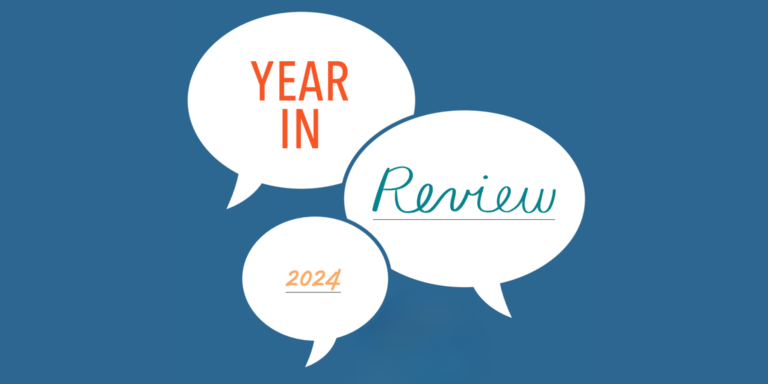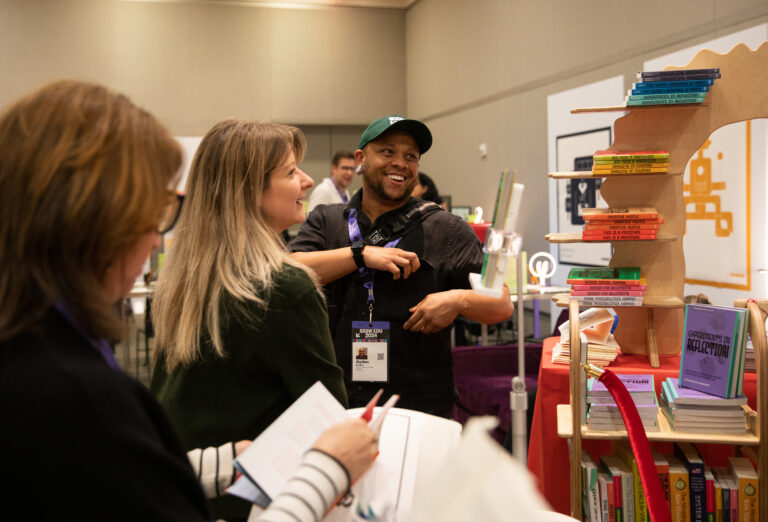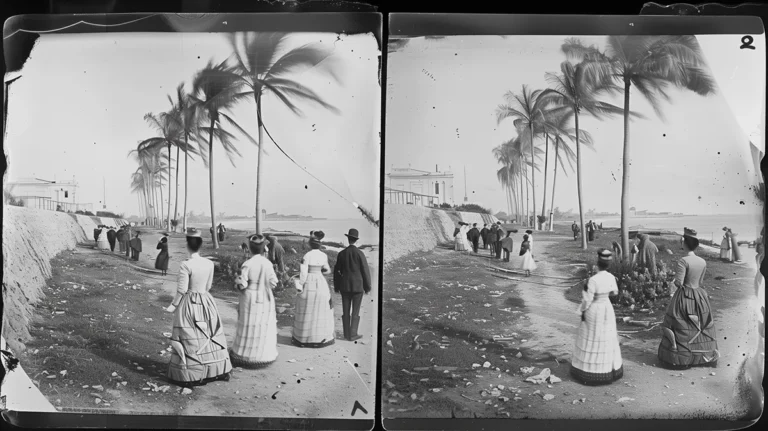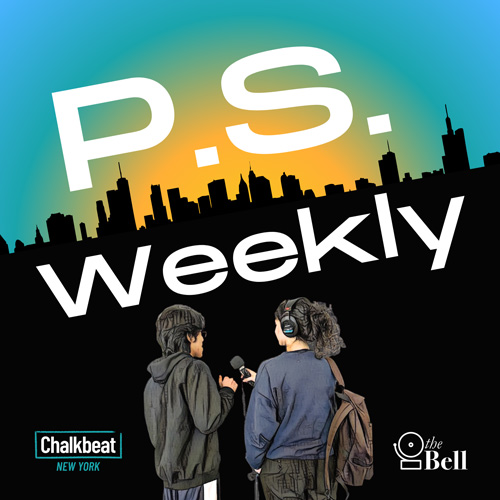We may be a small team, but our reach is mighty. Over the past quarter, we’ve traveled across the country and around the globe to seek out new perspectives, fresh solutions, and burgeoning insights that will shape our work in 2025. From Austin to London, New York to San Jose, we engaged in interactive and creative convenings, immersing ourselves in AI literacy, public interest technology, philanthropy, and the evolving role of media and infrastructure. Above all, we prioritized meeting our partners face-to-face—deepening our understanding of the challenges they navigate and how we can best support their work.
Across all these conversations, a few key themes emerged: the power of community in shaping the future, the urgency of responsible innovation, and the importance of listening as a tool for impact. Whether we were discussing the future of AI in education, how newsrooms can reclaim their role in an AI-driven information ecosystem, or how philanthropy must embed equity into its structures, one thing was clear: real change happens when we break down silos, build trust, and collaborate with intention. These lessons will continue to inform our work—and the work of our partners—as we move forward together.
Read on to learn more about the places our team went, the conversations we had, and the insights we’re bringing back to shape the year ahead.
RISE Collaborative, Birmingham
On January 30th, President & Executive Director Katy Knight traveled to Birmingham, AL for the RISE Collaborative, where she joined fellow experts in a deep dive on what it takes to build a thriving innovation ecosystem. Hosted by the Ronald Reagan Presidential Foundation & Institute in partnership with Innovation Depot, the conversation tackled how a strong foundation in education and equitable access to opportunity are critical for developing sustainable talent pipelines. Katy participated in a panel alongside Lili Gangas from Kapor Center, Michael T. Moe from GSV Ventures, and Jared Weinstein from Thrive Capital for a discussion on the building blocks of innovation—reinforcing that the infrastructure of the future starts with the investments we make today.
Artificial Intelligence Action Summit
Katy also attended the Artificial Intelligence Action Summit in Paris on February 10-11, along with a pre-summit Public Interest Technology (PIT) Funders Day on February 8. Hosted by the French government, the summit convened global leaders from government, industry, academia, and civil society to discuss AI’s role in shaping the future. While many conversations mirrored the challenges and opportunities seen in the U.S., Katy found it invaluable to step back and identify common threads across borders—especially when it comes to building the infrastructure for AI that serves the public good.
Yale Philanthropy Conference
On February 14, Chief of Staff and Director of External Engagement Laura Maher attended the Yale Philanthropy Conference in New Haven, where she spoke on a panel about AI and philanthropy. She highlighted the need for civil society to play a bigger role in shaping technology narratives—countering the influence of big tech and ensuring AI is developed with real-world communities in mind. The discussion reinforced philanthropy’s unique position to take strategic risks and convene nonprofits, researchers, and grassroots organizations to co-create AI-driven solutions that serve the public interest. A key takeaway from the day was the importance of aligning AI adoption with clearly defined challenges—rather than leading with technology, organizations should focus on solving problems and assess where AI can be a meaningful tool.
Data Science Education K-12: Research to Practice
From February 17-19, Grantmaking Manager Evan Trout attended the Data Science Education K-12: Research to Practice conference, which brought together educators, researchers, and curriculum developers to explore how data science can be more effectively integrated into K-12 learning. Discussions highlighted the potential of data literacy to enhance student inquiry, foster engagement with AI and emerging technologies, and bridge the gap between data and creativity. However, as Data Science 4 Everyone’s recent report underscores, access to these opportunities remains limited. The conference reinforced the importance of expanding equitable data science education and ensuring that both students and educators are at the center of these efforts.
Local News Summit & Knight Media Forum
Senior Vice President & Head of Research John Irons attended the Local News Summit in New Orleans (Jan 28-31) and the Knight Media Forum in Miami (Feb 18-20), engaging with leaders on the future of local journalism and the information ecosystem at large. Both conferences provided opportunities to connect with organizations and deepen Siegel’s thinking around civic knowledge infrastructure and how keystone players of that ecosystem—major and local news outlets—bolster our social infrastructure.
HBCU EdTech Summit
Vice President & Head of Grantmaking Joshua Elder and In-House Research Fellow Symone Campbell attended the HBCU EdTech Summit, hosted by Innovation for Equity, on February 19-20. During their panel discussion, they explored the ongoing challenges in the edtech landscape, particularly the need for stronger coordination and innovation systems. While schools seek evidence-backed tools, they often lack the capacity to serve as testing grounds for new technologies. The conversation highlighted philanthropy’s role in bridging this gap by connecting researchers, entrepreneurs, and educators to develop solutions that meaningfully engage students and families.
AI K-12 Deeper Learning Summit
From February 26-28, Vice President & Head of Grantmaking Joshua Elder and Senior Knowledge and Insights Associate Kyla Kasharian attended the AI K-12 Deeper Learning Summit, hosted by Digital Promise. On February 26, Josh participated in a funders-only workshop on AI and education, and on February 28, he spoke on a panel emphasizing a “context-first” approach to AI strategy. Rather than treating AI as a one-size-fits-all solution, the discussion explored how schools can assess their unique challenges and opportunities, ensuring AI implementation aligns with their specific educational objectives. Participants gained practical tools to map key barriers and levers within their own contexts, leaving with actionable strategies to integrate AI effectively.
Siegel also contributed interactive activities at the summit reception, including our Tech Values MadLib and exercises prompting attendees to rethink and remix the future of AI and education. A key takeaway from the conference was that while many promising AI tools are emerging, there remains widespread uncertainty among schools, funders, teachers, and students. Discussions highlighted the importance of moving from theoretical conversations to concrete implementation strategies. Notably, this was one of the first conferences we’ve seen to make a clear connection between AI education and entrepreneurship, and reinforced the critical role of student voice in shaping the future of AI in learning environments.
SXSW EDU
From March 3-5, Siegel had a strong presence at SXSW EDU, with Josh, Katy, Laura, Evan, Ellery, and Symone attending. Our partnership with Stanford d.school continued with The Public House, an immersive space designed to spark bold ideas and collaborative problem-solving. From interactive design challenges like Algorithm Alley to the Commitment Booth, where participants pledged their visions for the future, The Public House brought together educators, students, and innovators to reimagine what’s possible. We also hosted the Press Suite, Press Happy Hour, and worked with students from The Bell and RoadTrip Nation to ensure youth voices were central to the conversations shaping the future of education.
More than any single activation, what stood out most at SXSW EDU was the sense of community—where young people weren’t just part of the discussion but actively shaping it. The conference underscored the importance of forging unexpected partnerships, strengthening the connections between present challenges and future opportunities, and ensuring that innovation remains deeply rooted in the lived experiences of students and educators.
For more insights, read recaps from our partners at Big Thought, Luminary Labs, and Scratch, and check out Chalkbeat’s feature on The Bell’s students, who attended and recorded a live podcast from the conference.
SXSW Interactive and The Light House
From March 7-15, we packed up The Public House and set up shop at The Tech We Want’s Light House during SXSW Interactive, continuing our collaboration with Stanford d.school and expanding our engagement at the intersection of technology, society, and responsible innovation. Katy, Josh, Ellery, and Laura remained for the duration, while Owen and John joined for the conference.
The Light House, co-produced by The Tech We Want, Omidyar Network, Siegel, Stanford d.school, and Black Innovation Alliance, offered a vision of a tech ecosystem that puts people—not technology—at the center. Designed as a gathering space for funders, tech leaders, and builders of an alternative, values-driven tech future, the activation fostered deep conversations around inclusivity, sustainability, mutualism, accountability, and responsible innovation.
A key moment was Katy’s panel, “Getting Our $$$$ Together: Strategizing with Funders,” which convened philanthropic leaders to discuss the need for collective action in funding public interest technology. As the landscape of responsible tech faces increasing challenges, panelists explored strategies for ensuring sustained investment in community-led, inclusive innovation and the role of funders in safeguarding the infrastructure, laws, and rights that uphold a people-centered approach to technology.
Through interactive experiences, intimate discussions, and dynamic workshops, The Light House lived up to its name as a shining beacon amidst the hustle of those working to embed responsible tech values in emerging technologies. It was an inspiring continuation of our work at SXSW EDU, reinforcing the importance of coalition-building and cross-sector collaboration in shaping the future of technology in service of people.
AI + News: Charting the Course in Europe
On March 12-13, Siegel sponsored the European AI + News Media Summit in London, hosted by Aspen Digital and Reuters, where Katy, Ellery, and Laura joined European news leaders to discuss AI’s evolving role in journalism. This convening built on last year’s AI + News meeting with U.S. outlets, shifting the focus from setting AI guidelines to implementation and reimagining the information ecosystem. Discussions explored how AI can enhance audience trust, engagement, and multimodal experiences while adapting to shifting consumer behaviors.
Participants examined how news organizations can leverage collective power, legal structures, and licensing models to shape AI’s role in journalism sustainably. The need for innovation sandboxes emerged as a priority, allowing responsible AI experimentation inspired by strategies in marketing, influencer media, and audience partnerships. A key challenge remains balancing personalization with a shared understanding of reality, ensuring AI serves journalism’s core mission rather than undermining it. Read more in Fortune.
The Funders Network Conference
At The Funders Network’s 25th Anniversary Conference in Baltimore (March 17-19), Evan presented alongside colleagues from Feedback Labs, Voqal Partners, and the Charles Stewart Mott Foundation on building momentum for equitable listening practices in philanthropy. The session focused on creating buy-in for strong listening practices within funding organizations and the communities they serve, with discussions on what these practices look like in daily operations. The highly interactive format allowed Evan to engage in small group discussions, fostering connections and shared enthusiasm for improving philanthropic impact through intentional listening.
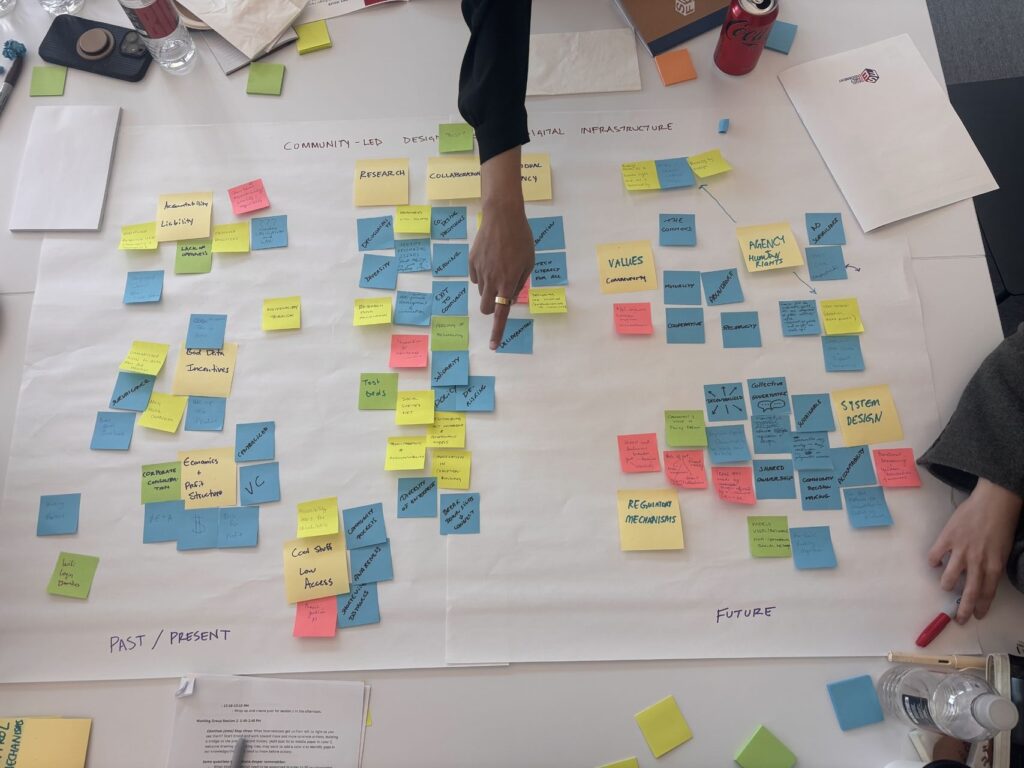
Siegel Fellows Annual Convening
From March 18th to 20th, we convened our fourth cohort of Siegel Research Fellows in New York City. Fellows from across the country gathered to explore the future of AI and work, community-led digital infrastructure design, and building Public Interest Technology ecosystems. Key themes emerged, including the importance of decentralized control, strong policy and systems foundations, distributed power, and investment in public goods—all critical to shaping a more inclusive and sustainable future. Special thanks to Cornell Tech and NYU’s Center for Social Media and Politics for hosting this inspiring gathering!
PEAK Grantmaking Annual Convening
Kyla attended PEAK2025 in New Orleans on March 24-26, a key convening for grants management professionals. Discussions emphasized the balance between urgency and patience in driving change, the need for long-term resilience in philanthropy, and the role of institutional structures in advancing equity. AI remained a major topic, with a growing demand for more concrete discussions on its current impact in the sector.
National AI Literacy Day Summit
On March 28, Josh spoke at the National AI Literacy Day Summit hosted by The Tech Interactive in San Jose and co-hosted a funder breakfast with Valhalla Foundation to discuss the critical role of AI literacy in shaping the future of education. The event emphasized that AI literacy is no longer optional but foundational, equipping students with the critical thinking, computational, and problem-solving skills needed for the future. Achieving this vision requires a collective effort—bringing together educators, students, families, funders, policymakers, and community leaders to ensure that everyone has the tools and knowledge to thrive in an AI-driven world.


